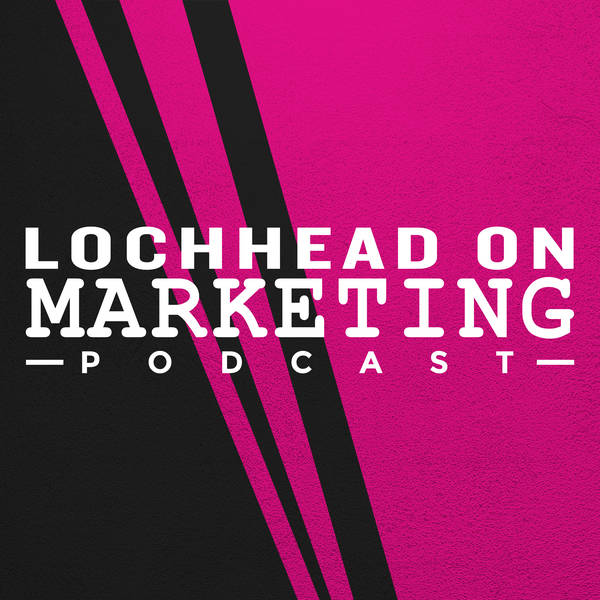
119 The Conversation You’re Probably Not Having, That You Probably Should Be Having
This episode is based on the Category Pirates Newsletter.
In this episode of Lochhead on Marketing, we continue our discussion on Native Digitals and the impact they are having on the way we live, work, and play. You might find this episode confusing if you haven’t checked out the last two episodes (LOM 116 & LOM 117). You should definitely check them out to be informed of what exactly are Native Digitals and their relevance.
As for this episode, I will try and re-create some of my conversations with entrepreneurs, CEOs & VCs lately about the biggest sea-change in a very long time that is hiding in plain sight. Though for some reason, most people are not talking about it.
Native Digitals vs Native Analogs
Best I can tell Native Analogs (people who are over 35 years old) are pretty much asleep to a massive transformation. The fact that Native Digitals are the first generation of humans ever to grow up integrated with technology and have a digital life experience is lost to them.
The problem with this is the disconnect between a company trying to move into the digital age, but still have Native Analogs for their CEO. Take for instance the WSJ article about working from home. Now that restrictions are lessening, most Native Analog bosses want their employees to be back in the office. Though Native Digitals think otherwise.
“Many CEOs say their companies function best when employees can interact in person. (Though) Workers have indicated in surveys that they want greater flexibility about where and how they work.” – Wall Street Journal
So Native Analog CEOs are saying you've got to come back to work. Though a lot of employees, a meaningful percentage of them, are millennials who want to continue working digitally from their homes. Native Digitals are even saying that they’d rather quit than go back to the old office system.
So if you’re a company looking to hire after this new normal, working remote could very well be the signing bonus you can offer to these Native Digitals.
On Digital Creation vs Digital Transformation
The big AHA moment for me here is that this new category of humans are creating a new category of work. They’re not just being transformed digitally. It’s being created anew in the digital space. It’s not just creating an imitation of the office remotely, the remote digital space is their office.
So this Native Digital versus Native Analog conversation has been coming up a lot with entrepreneurs and marketers. The reason behind this is it has profound implications for how we build companies, products, categories, and brands.
“I think the first thing it means is if you're a Native Analog is that you got to start off by realizing you don't get it and you got to build a bridge to the Native Digitals. It's sort of like if you're a woman, you can empathize about what it might be like to be a man, but you will never truly get it. And of course, the opposite is true as well. ” – Christopher Lochhead
In order to work together, we need to build bridges of understanding to really get some powerful things done. Because as somebody who is Native Analog who works with other Native Analogs and a lot of Native Digitals, there's something magical here when the two generations could come together.
To hear more on how you can transform yourself to become more digital, download and listen to this episode.
Bio
Christopher Lochhead is a #1 Apple podcaster and #1 Amazon bestselling co-author of books: Niche Down and Play Bigger.
He has been an advisor to over 50 venture-backed startups; a former three-time Silicon Valley public company CMO and an entrepreneur.
Furthermore, he has been called “one of the best minds in marketing” by The Marketing Journal, a “Human Exclamation Point” by Fast Company, a “quasar” by NBA legend Bill Walton and “off-putting to some” by The Economist.
In addition, he served as a chief marketing officer of software juggernaut Mercury Interactive. Hewlett-Packard acquired the company in 2006,
